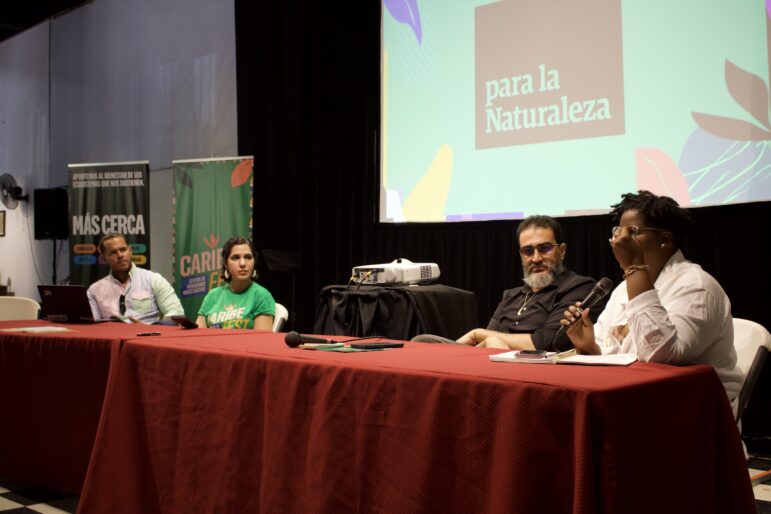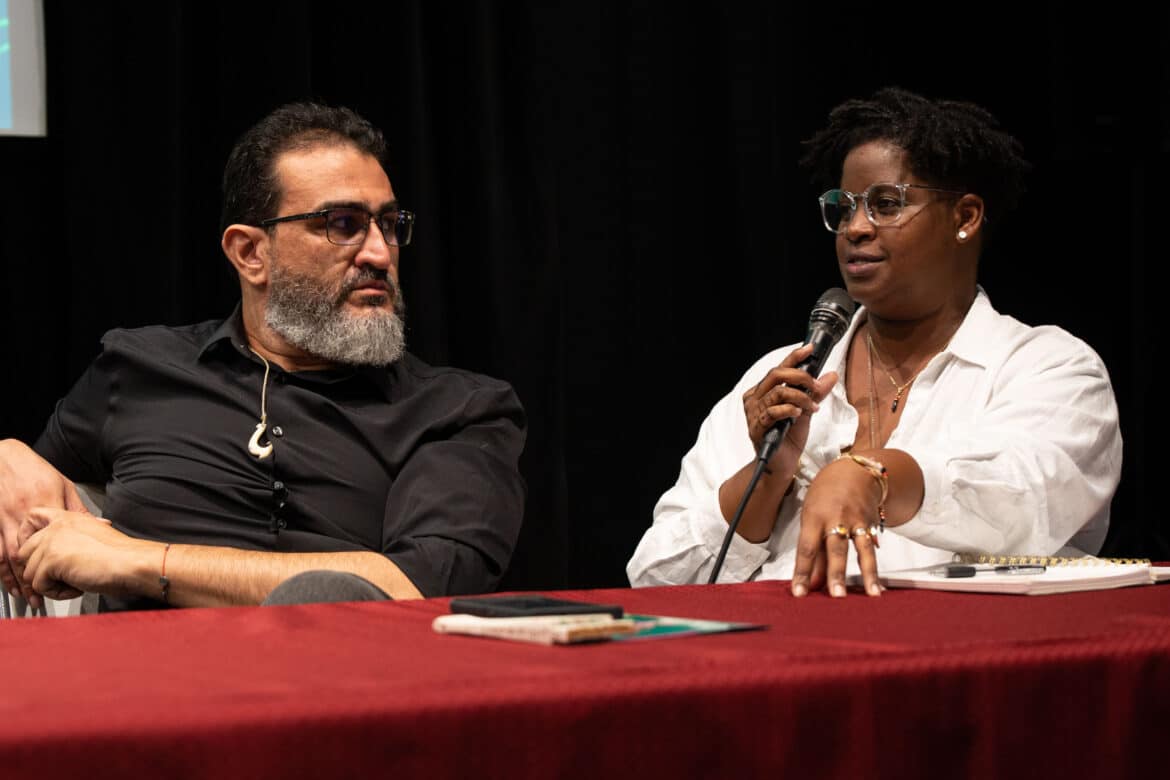“The issue of climate change is intersected by capitalism, colonialism and racism.” Gloriann Sacha Antonetty Lebrón, founder and editor of Revista étnica, said during her participation in the panel “Intersections of poverty, race, gender and climate crisis,” as part of the lineup of activities during the Caribe Fest event that took place May 4-6 in Old San Juan.
Antonetty Lebrón sat with Roberto Thomas, coordinator of the Jobos Bay Eco Development Initiative (Idebajo, in Spanish), at the panel moderated by Center for Investigative Journalism (CPI, in Spanish) journalists José Encarnación and Cristina del Mar Quiles — also co-founder of the feminist journalism media outlet Todas.
They explained that there is an intersection between the climate crisis and poverty, people of color and gender, which is observed, for example, in the displacement events of vulnerable communities in Puerto Rico.
Antonetty Lebrón evoked the historical aspect of racism and enslaved people to show the experiences that vulnerable communities have experienced along Puerto Rico’s southern region, the historic population of Calle Loiza in Santurce, -a San Juan neighborhood- as well as residents of the island municipalities of Vieques and Culebra.
“Racism, trafficking, slavery… what it did was dehumanize us and give reason to exploit us; break our spirit, exploit our lands, force us to work the land and, once we get to enjoy the natural resources a bit, we know that they are resources that are constantly under threat: they plunder them, they displace us,” the editor of Revista Étnica said.

Photo by Joan Camille Cruz | Centro de Periodismo Investigativo
She added that racism and slavery are a “historical and personal issue,” since those are traumas that are passed from “generation to generation.”
Thomas, meanwhile, agreed the climate crisis is not only linked to capitalism, but also to colonialism. He mentioned that historically, in the relationship between the United States and Puerto Rico, it is seen that Puerto Rican culture is considered inferior and this is manifested in the ongoing affirmation that Puerto Ricans are not capable of self-government.
Development at the expense of displacement
Tourism development through the construction of hotels, luxury buildings, and the use of properties for short-term rentals through platforms, such as Airbnb, have been at the expense of the displacement of communities that have historically lived in certain areas of Puerto Rico, the panelists said. Many of these people are pushed out of their homes and communities without housing options, they added.
Antonetty Lebrón mentioned as an example how a community of evidently black people on Loíza Street in Santurce — mostly women — was displaced because, presumably, the area was abandoned and dirty. Job opportunities were taken away from them and they had to find another place to go, the journalist regretted.
She also recalled that her own family battled with several municipal administrations that were seeking to buy their land from them because of the view that their plot had, in the Santurce area.
For Antonetty Lebrón, these communities are constantly on the lookout for people who want to take away their right to remain in these areas, which have the best beaches and views.
Women affected on several fronts
Facing emergencies and natural phenomena has greater implications for women who dedicate themselves to certain socially imposed roles due to gender issues, such as the care and upbringing of minors — a job that is not paid.
“[It is] an exploitation of the woman’s body,” said Antonetty Lebrón. Added to this is the fact that women’s health is affected by stress, exhaustion, and the physical load, because caretaking work becomes more complex during emergencies.
About this Thomas noted that there is a system of hierarchies of oppression that creates expectations that lead to exploiting working communities and women. “Right now, it’s crisis upon crisis upon crisis and the need for care increases and exploitation increases,” he said of the need to work to survive in vulnerable communities. He said capitalism thrives on racism and colonialism to function, because if it does not have a territory and a foreign body to exploit, it does not have a function.
In Puerto Rico, and in other latitudes, there are struggles over the right of women to decide over their bodies and their sexual and reproductive rights.
Antonetty Lebrón said the recent establishment of public policies seeks to have power and control over women’s bodies, something that has already caused them to lose access to health services. She added that Puerto Rican women were forced to take contraceptives, which represented exploitation of their bodies.
“We cannot separate the issue of climate change from our living spaces, from our lands, from our communities as feminized bodies, that we have needs, and that we lack access to knowledge and knowledge of our people, our families and, on the other hand, laws are being imposed on us to control our bodies,” concluded the editor of Revista étnica.
Caribe Fest was an initiative of the CPI dedicated to the issue of the climate crisis, which included the participation of journalists and editors from Puerto Rico and 13 countries and territories of the Caribbean. The conference, which also had an agenda for the public, included workshops, conferences,and panels aimed at promoting auditing and the search for solutions to this problem.




